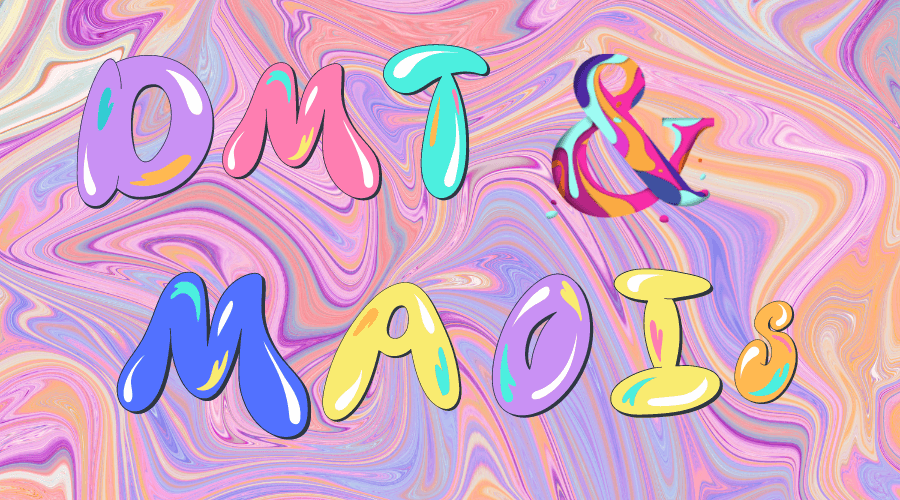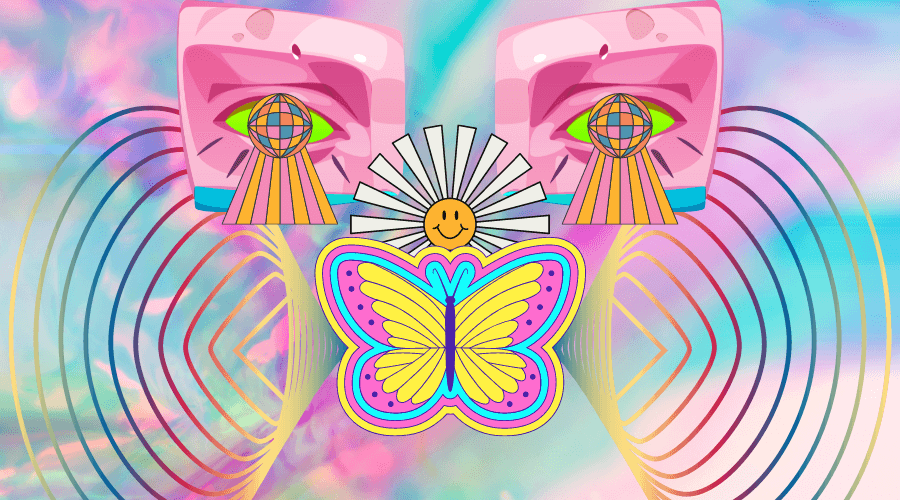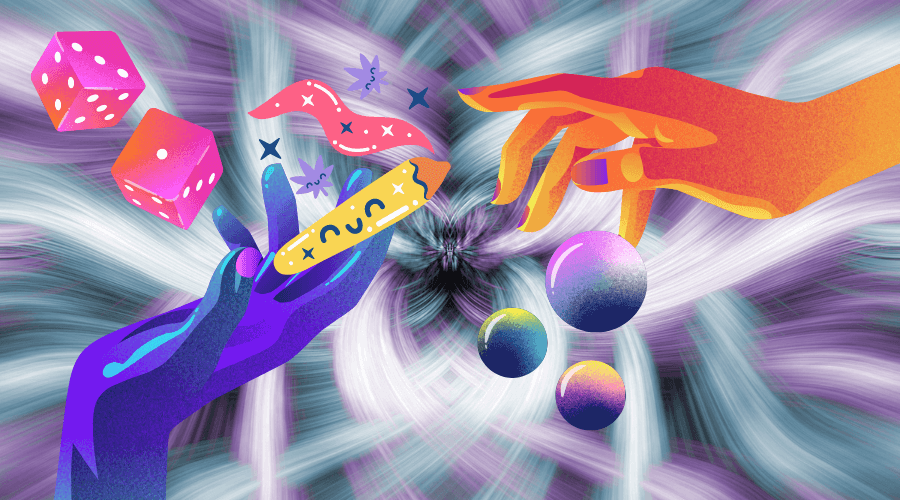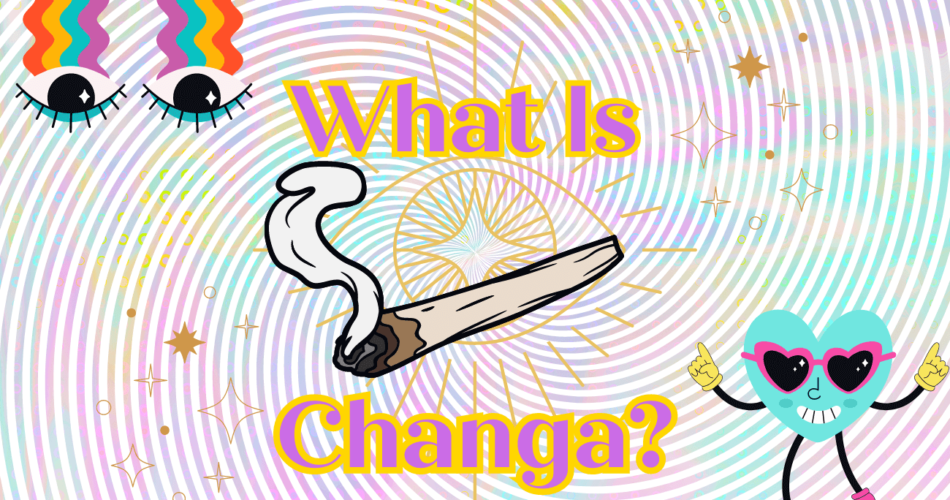Changa was “discovered” by an Australian psychonaut, Julian Palmer, at the beginning of the 21st century. It’s a smokeable DMT blend with prolonged and intensified psychoactive effects. In this article, we will discuss changa’s effects and safety. Let’s get started!
TL;DR
- Changa is a smokable DMT ✨
- It lasts longer than DMT, and is more potent, albeit gentler ✨
- It is very dangerous to mix changa with any other drugs ✨
What Is Changa?

Changa is a type of smokable blend that is made from a combination of DMT (dimethyltryptamine) and MAOI (monoamine oxidase inhibitor). Basically, DMT-containing herbs, and MAO inhibitors plants (for example, Banisteriopsis caapi vine) are mixed into one blend. They can and sometimes are infused with pure DMT.
Changa is usually blended with other herbs, such as Syrian rue, passionflower, and wild dagga, to enhance its effects and flavor. The MAOIs help to prolong the duration and intensity of the DMT experience. Changa is typically smoked in a pipe or bong, and is considered to be a powerful entheogen with psychedelic effects.
What Are MAOIs?
MAOIs (monoamine oxidase inhibitors) are a type of antidepressant medication used for treating depression and anxiety. They work by blocking the enzyme monoamine oxidase, which breaks down the neurotransmitters (serotonin, norepinephrine, and dopamine) in the brain. This helps to increase the amount of these neurotransmitters available in the brain, creating a calming effect and helping to reduce feelings of depression and anxiety.
Can MAOIs Be Safely Mixed With Other Drugs?
No, MAOIs (monoamine oxidase inhibitors) should not be mixed with other substances; especially, SSRIs (selective serotonin reuptake inhibitors). Combining MAOIs with serotonergic drugs can lead to serious, potentially life-threatening side effects, such as a condition known as serotonin syndrome. However, some psychoactive substances were proven to be less likely to be dangerous.
How Do MAOIs Work With DMT?
MAOIs block the enzyme monoamine oxidase, which helps break down certain substances, including DMT. This results in a longer duration of the DMT effects, approximately by 10-20 minutes.

The Differences Between Changa and Freebase DMT
The main difference between changa and freebase DMT is the method of ingestion. You can smoke changa, but you can’t smoke freebase DMT (however, vaping might be an option). Changa is said to be a more gentle and gradual experience, whereas freebase DMT is known for being very intense and overwhelming. Changa is also said to produce a more dreamlike and spiritual experience than freebase DMT, which is often referred to as a “rocket launch.”
Regarding potency, changa is usually more potent than DMT. Even lower doses can lead to breakthrough experiences, and profound hallucinations.
Editor’s Note 🍄
When it comes to changa’s potency, the truth is, every blend is different. It is very hard to predict the exact dose of DMT in it, and you might find it less or more potent depending on your own state of mind. After all, changa does affect the serotonin system.
The Psychedelic Effects of Changa
Changa is used to induce altered states of consciousness and can produce a range of psychedelic effects. The effects of changa vary depending on the blend and the individual, but the most common include:
- increased sensory perception, including enhanced visuals, auditory, and tactile sensations;
- distorted perception of time and space;
- enhanced creativity and spiritual insight;
- altered states of emotion, thought, and awareness;
- feelings of connection and unity with the world;
- increased empathy and compassion for others;
- feelings of peace, bliss, and contentment;
- sensitivity to music, art, and other forms of communication.

Changa and Ayahuasca Compared
Changa and Ayahuasca are both psychedelic substances that can induce altered states of consciousness and profound spiritual experiences. However, there are some differences between the two:
- Ingredients: Ayahuasca is typically made from the Ayahuasca vine and chacruna, whereas Changa is made from a combination of DMT-containing plant material, harmala alkaloids, and other herbs.
- Preparation: Ayahuasca is typically prepared as a brew, which involves cooking the plant material together for several hours. Changa, on the other hand, is usually smoked, vaporized, or used in a pipe.
- Duration: The effects of Ayahuasca can last anywhere from 4 to 8 hours, while Changa tends to have a shorter duration, usually lasting around 20-30 minutes.
- Intensity: Ayahuasca is often described as a very intense experience that can be physically and emotionally challenging, while Changa is said to be more gentle and subtle, with a smoother come-up and come-down.
- Setting: Ayahuasca is traditionally consumed in a ceremonial setting, under the guidance of a shaman or experienced facilitator. Changa is often used in more casual or recreational settings.
Both of these substances should be used with caution and respect, and only in appropriate settings with experienced guidance.
Similar Posts:
- Ayahuasca vs DMT: Are These Psychedelics the Same?
- Ayahuasca Guidelines: Preparing for a Ceremony
- How Is DMT Made? About Dimethyltryptamine, the “Spirit Molecule”
- Lexapro and LSD: Psychedelics and SSRIs Antidepressants
- Ayahuasca Diet: How to Prepare Yourself for the Ceremony?
- Can LSD Cause Serotonin Syndrome Like Antidepressants?
- Psychedelics for Depression: All About Mental Health Treatment With Psychedelic Drugs





